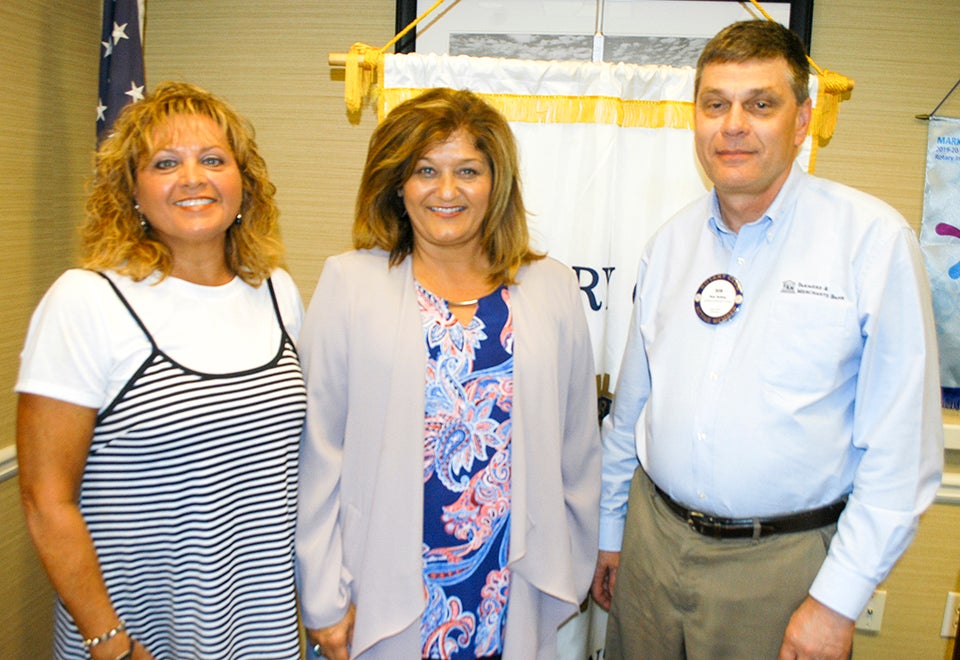Wood has eyes on next Legislative session
Published 4:00 pm Thursday, August 15, 2019

- District 38 State Rep. Debbie Wood, center, talked about her plans for the 2020 Legislative session at Thursday’s West Point Rotary Club meeting. Left, is Debbie Kelley, club president, and right, Rob Huling, the program chairman. -- Wayne Clark
LANETT — Alabama’s 2019 legislative session wrapped up several weeks ago, but District 38 State Representative Debbie Wood is already making plans for the 2020 session.
High on her list of priorities are some issues that were proposed this year but failed to gain passage, among them are a state lottery, medical marijuana, distracted driving, payday loans and mandatory kindergarten.
Wood was the guest speaker during Thursday’s meeting of the West Point Rotary Club.
She believes there’s support in both houses for a lottery. Legislation may have passed this year had both chambers been able to smooth out their differences.
“We wanted 25 percent of it to go to education, but the Senate didn’t like that,” she said.
The state has two budgets, a special education trust fund which gets a majority of the annual funding, and a general fund budget that covers everything else. Another problem when it comes to new programs is the fact that 90 percent of the budget is earmarked to existing programs.
“Only 9 percent of the budget is left to be spent on other things,” Wood said.
Among the other things the state has urgent needs for are prisons and mental health.
Wood said she had a very different view toward medical marijuana than she did 10 years ago, largely due to the fact she has survived breast cancer.
“I was given lots of synthetic drugs that can wreck your body,” Wood said. “We will be talking a lot about medical marijuana next year. The legislature created a medical marijuana commission to make a recommendation for 2020.”
There’s a groundswell of support behind legislation on distracted driving. A bill was proposed but faced very strong opposition from ridesharing companies such as Uber and Lift.
Another new law makes all entities collecting personal or real ad valorem tax to perform a final settlement each year. In Chambers County, for example, property taxes are collected by the revenue commissioner’s office while taxes on personal property (vehicles, mobile homes, etc.) are collected by the probate judge’s office. Without a final settlement to the state, it’s possible for missing money to be undetected for some time.
“Randy Price carried this in the Senate, and I carried it in the House,” Wood said. “When I testified about this in committee, I told them about the $300,000 that had come up missing in my home county. It was amazing how so many people said they’d had similar problems in their county.”
Club member Carolyn Lott, a CPA, said the real problem with the missing money is that the state didn’t find it for three-and-a-half years.
“They were that far behind,” Lott said.
Another bill passed changed the law on how jail food funds were managed. Under previous law, it was the sheriff’s responsibility to do this. The money was intended for food, but each county sheriff could legally spend it on anything he wanted to. The new law adds restrictions to how that money can be spent.




